Content
One of the secrets of successful gardening is the correct selection of plants for their compatibility with each other. The list of vegetables that can be planted next to peas on the same bed is not too extensive. It is advisable to familiarize yourself with them before growing a crop in order to ensure a good harvest.
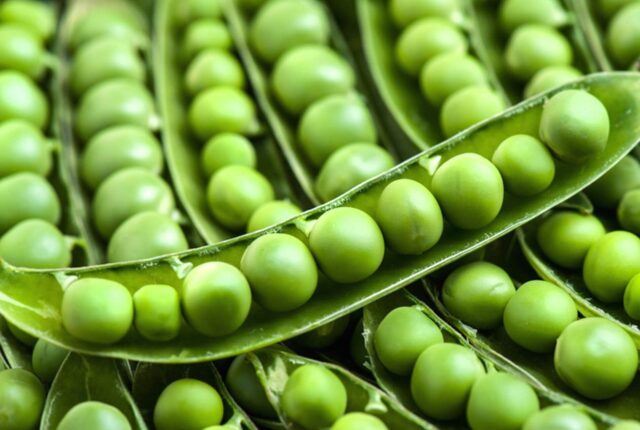
Correct agricultural technology is the main condition for the yield of any vegetables.
How crop compatibility affects yields
Compatible crops are called crops that, when grown on the same bed, not only do not suppress, but also have a positive effect on each other, creating a favorable microclimate that contributes to normal development and increased yields.
Correct neighborhood makes it possible to:
- receive fresh vegetables from early spring to late autumn;
- increase the productivity of crops grown by a number of;
- improve the quality of vegetables and berries;
- rationally use the useful area of the garden;
- prevent the development of diseases and pests;
- attract more pollinating insects;
- increase the profitability of the site by compacting plantings of vegetables with different ripening periods.
In addition, the habit of planting compatible crops in the same or adjacent beds, requiring the same soil composition and identical care, makes it possible to control the content of nutrients in the soil and provide adequate plant nutrition.
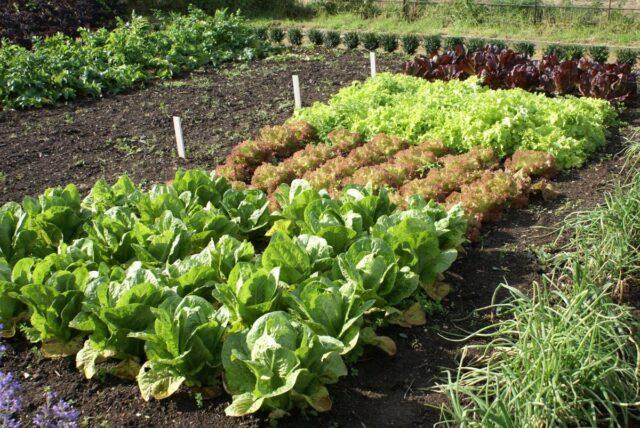
The right neighborhood will benefit all plants
Pea compatibility with other crops
You can find a suitable place for peas even in a small area. This representative of legumes is docile, not aggressive and gets along well with nearby plants.
A powerful root system loosens the soil well, thereby providing oxygen access to the roots of other plants, and the white or purple flowers exuding a pleasant aroma attract insects, which at the same time pollinate the crops growing with it in the same bed.
Legumes are distinguished by their ability to saturate the soil with nitrogen, which makes the neighborhood of peas very useful. Their long roots allow them to extract nutrients from the deep layers of the soil, leaving other crops closer to the surface.
Planting this plant nearby is also recommended due to the presence of lush tops, which not only prevents the evaporation of moisture from the soil, allowing you to reduce the frequency of watering, but also inhibits the growth of weeds in the garden.
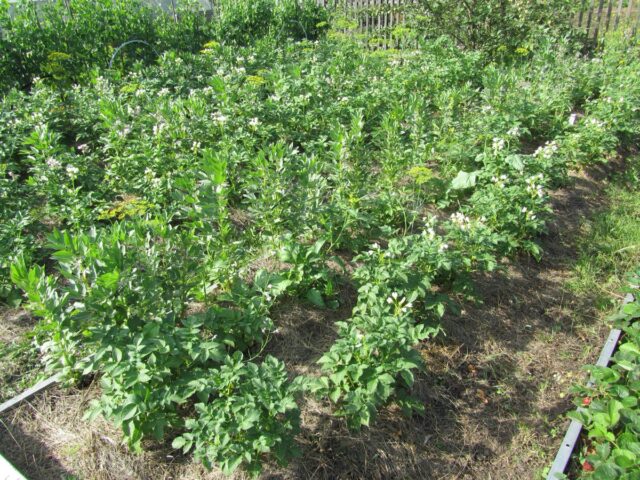
Neighborhood with legumes is popular with many plants
With what to plant peas in the same garden
The yield of peas will largely depend on which neighbors grow with it in the same bed.
Good partners for this culture can be:
- Strawberry. The fibrous root system of strawberries located in the upper layer of the soil is so small that it is unlikely to be able to harm the nearby plants, and even more so the peas, which are able to penetrate into the deeper layers of the soil. If this vegetable is planted with strawberries, you can get a good harvest of both crops.
- Zucchini, squash, pumpkin and cucumbers. All these vegetables actively consume nitrogen, which they are fully provided with by a properly selected neighbor.And insects that arrive on the fragrant flowers of legumes also pollinate the pumpkin.
- Cabbage. This neighborhood is good for her too. The representative of legumes will loosen the soil with its roots and protect the neighbor from rotting. Gardeners recommend planting Peking cabbage next to it, the taste of which becomes more pleasant and sweet from this.
- Potatoes. The tradition of sowing peas with this vegetable appeared many years ago. And this is not surprising, because the presence of legumes helps to improve crop yields. In addition, if you plant peas nearby, it will scare away pests from potato bushes, including the Colorado potato beetle, which saves on insecticides.
- Carrot. The essential oils contained in carrot tops are capable of warding off harmful insects. If you plant legumes next to carrots, you can get a good harvest of both crops.
- Beet. Such neighbors get along well on the same bed. If you plant them together, the peas will not take food from the root crop, because its roots are longer, and the beets growing nearby will serve as a good support for the neighbor, which will eliminate the need for his garter.
- Radish, daikon. Planting legumes next to these vegetables is a good option. It is noticed that such a neighborhood improves not only the yield, but also the taste of root crops.
- Corn. This culture gets along well on the same bed next to peas, which fully provides it with nitrogen and protects the roots from overheating. When planted side by side, tall corn is a good support for braiding legumes.
- Mustard. Actively absorbing the nitrogen necessary for its growth, the crop planted nearby provides peas with useful substances that improve their fruiting.
- Spices. Essential oils found in peppermint, sage, rosemary and other spice crops of this type help repel harmful insects. This benefits both the herbs and the neighboring neighbors.
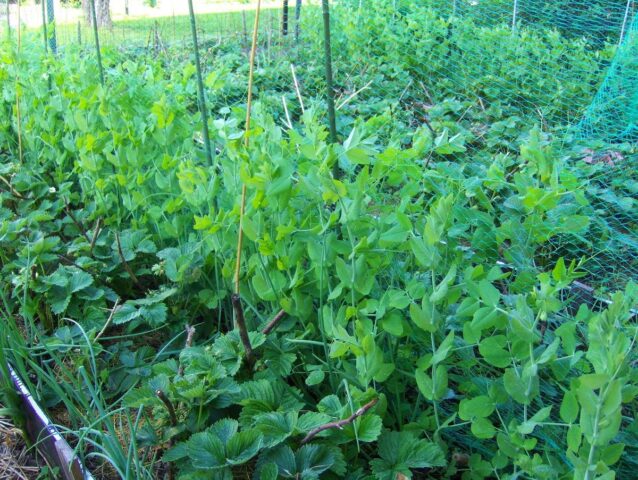
Even with a well-chosen neighborhood, it is better not to give up tying peas
What is better not to plant peas
Despite its beneficial properties, this vegetable may not be a good neighbor for everyone. It is not recommended to plant it on the same bed with the following plants:
- Onion and garlic. The roots of these vegetables secrete phytoncides - special substances that can inhibit the growth of legumes, so such a neighborhood will definitely not benefit peas.
- Tomatoes. It is also better not to plant tomatoes next to peas. Such a neighborhood may not be the best way to affect the yield of both vegetables.
- Fennel. It is an aggressor that is able to suppress all nearby growing plants. Only cilantro and coriander can resist fennel. But you should not plant peas with it.
- Sunflower. He is also one of the aggressors capable of oppressing neighbors, so it is better not to sow legumes with him. Moreover, according to experts, sunflower occupies almost the last place in the pea crop rotation, respectively, after this crop it is not recommended to plant it.
- Basil and wormwood. The proximity with herbs with a specific aroma reduces the vitality of the plant and gives the fruit a bitter taste.
It should not be planted in close proximity to alfalfa and clover, or in the shade of spreading trees and shrubs.
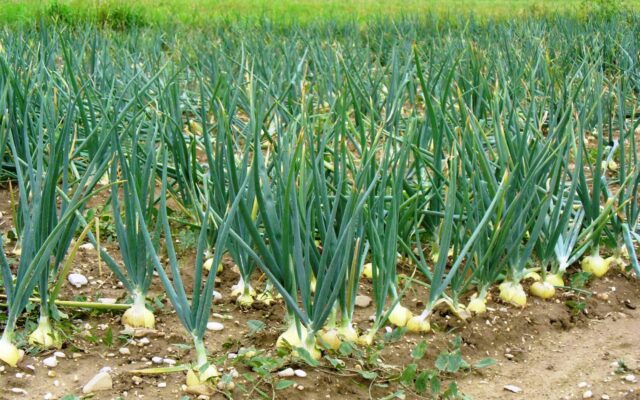
Peas growing next to onions will not be able to actively develop and therefore will not give a good harvest
Best precursors for peas
Crop rotation will help to get a good harvest and prevent the accumulation of pathogenic microorganisms in the soil, that is, the alternate cultivation of different annuals on the site.
With a well-designed schedule, previously planted plants not only do not impoverish or infect the soil, but also help to increase the yield of vegetables and berries in the next year. At the same time, each subsequent crops must replenish the stock of nutrients in the soil, consumed by their predecessors.
So, for example, in order to get a good harvest of legumes, you need to know after which you can plant peas in open ground.
Legumes will normally feel after many plants, except for their "relatives", that is, representatives of this family.
Ideal predecessors of peas in a crop rotation are: potatoes, cabbage, cucumbers, pumpkin, zucchini, dill, corn. You can plant it after strawberries, strawberries and carrots.
But on a site previously sown with cereals, it is better to place a vegetable, provided that the beds are well cleared of straw and weeds.
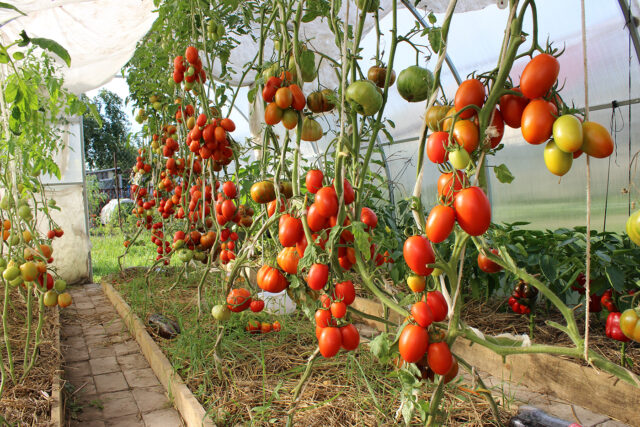
The next year, peas can be safely planted in the garden after tomatoes.
Is it possible to sow peas after peas
Soil saturated with nitrogen (and this is what it becomes after legumes) is the least suitable for growing vegetables. For this reason, you cannot plant peas after peas the next year. Another time, legumes in this area can be sown no earlier than in four years.

It makes no sense to plant peas after beans - there will be no good harvest
What can you plant after peas next year
Useful properties of legumes make it possible to use representatives of this family as green manure.
Embedding plant tops in the soil:
- helps to saturate it with useful substances;
- improves soil structure;
- provides a favorable environment for the development of beneficial microorganisms.
Therefore, the next year after the peas, almost all cultivated plants can be planted, except for the legumes themselves.
Conclusion
Plants can be planted near peas that will not interfere with their growth. The correct choice of neighboring crops will help not only to grow a good harvest, but also to maintain soil fertility, which is very important in any agricultural economy.








